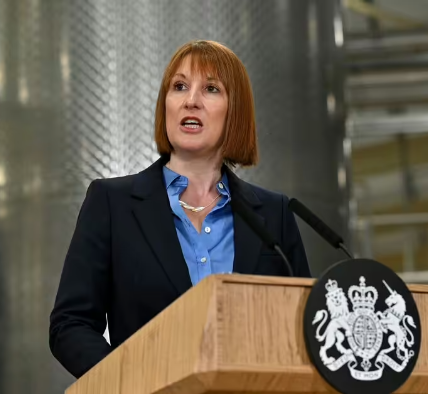Closure of steel plants will devastate communities like the end of coal mines, says Reform MP

Richard Tice Reform MP (Image: Getty)
THE destruction of the UK’s steel industry will devastate communities in a similar way to pit closures in the 1980s, according to Reform Deputy Leader Richard Tice.
And it will put the nation’s security at risk by making the UK reliant on foreign imports needed by the construction and defence industries.
Mr Tice, one of five Reform MPs elected in July, is to call for an end to the drive towards “net zero” which he says has caused the death of the steel industry by hiking up energy prices, when he leads a debate in Parliament this week.
He said: “The devastation inflicted on these communities will be of a similar scale to what we saw during the miners’ strike.
“It is all because of the madness of net zero pushing up costs.
“Once again it is Westminster shafting industrial communities and failing to understand them.”
Around 222,000 jobs in coal mining and related activities were lost between 1981 and 2004, and more than 11,000 people were arrested as police and striking miners clashed.
The UK is set to become the only country in the G20 without the ability to produce its own “primary” steel from iron ore, once two blast furnaces operated by Chinese-owned British Steel at Scunthorpe close with the loss of 2,000 jobs.
It follows the closure on September 30 of the Port Talbot steelworks, owned by Indian conglomerate Tata, with the loss of 2,800 jobs. The firm announced days later that it was to build a huge new blast furnace in Kalinganagar, India.
Tata plans a new electric arc furnace on the Port Talbot site, which will produce steel by melting down existing scrap. Built with a £500 million government subsidy, this is expected to create 500 jobs but it will take at least five years to get up and running and critics say the UK will still be forced to import primary steel from countries such as China.
High energy costs have been blamed for the decline of steel production in the UK, where firms pay up to 50 per cent more than competitors in France and Germany. It means the industry pays £117 million more for their electricity than European competitors, according to trade body UK Steel.
Mr Tice said: “From a national security and infrastructure point of view, this is a catastrophic failure. It means we can no longer make the steel we need for our own tanks and warships.”
“Currently 95 percent of all new steel making is happening in Asia. Everybody else is paying lip service to net zero because they know it is mad.”
A Government spokesperson said: “We’re working in partnership with trade unions and businesses to secure a green steel transition that’s right for the workforce and safeguards the future of the steel industry in Britain.
“We’re supporting the industry to transition to electric arc furnaces reducing our reliance on imports and we’re considering options for primary steelmaking in our Steel Strategy that will set out a long-term vision for a bright and sustainable future.”

